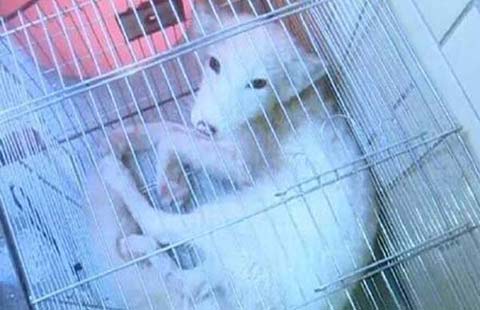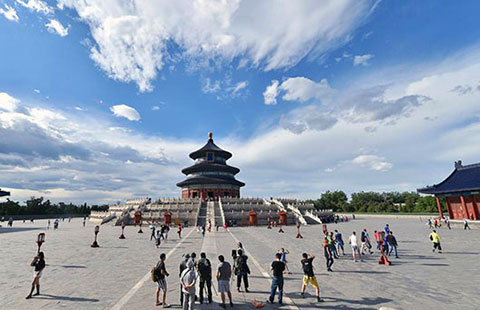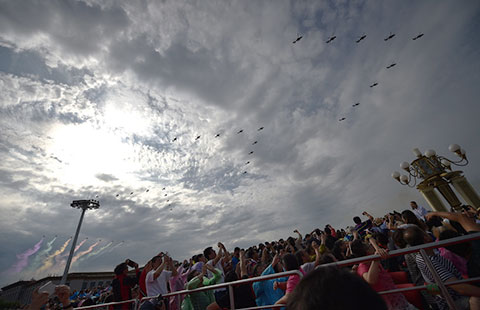Chinese veterans recall fierce fighting in WWII
(Xinhua) Updated: 2015-07-07 06:57"In order not to delay the withdrawal of the majority of the troops, more than 1,000 injured or sick soldiers asked for gasoline to self-immolate. They would rather die than be taken prisoners of war," remembered Liu, 95, who now lives in east China's Anhui Province.
More than 10,000 were killed in Japanese airstrikes in Baoshan City, Yunnan, on May 4, 1942. Almost half of the city's population died on that one day.
"So many students were killed or injured. Their sobs and wails filled the air," said Geng Deming, 81, who lost his 5-year-old sister on that ill-fated day.
"I rushed home from school, past rivers running red and bodies piled up under bridges," recalled Geng, who is also a war historian.
More than 35 million Chinese troops and civilians were killed or injured in the anti-Japanese war, official statistics show.
The main force of the Japanese army was in China during World War II, said Tan Huwa, a researcher with Yan'an University in Yan'an, a revolutionary base in Shaanxi Province, northwest China.
China's fierce resistance prevented Japan from attacking the Soviet Union or sending more forces to the Pacific battlefield, disrupting Japan's war plan, he said.
His opinion is echoed in "China's War with Japan, 1937-1945: The Struggle for Survival" , written by Rana Mitter, a professor of history at the Oxford University, the United Kingdom.
Mitter highlights the vital part China's resistance against Japan played in WWII.
- Delegation salutes Tibet anniversary
- Officials are told to act as anti-graft watchdogs
- Great Wall safeguarded in united action
- Vice minister pledges more efforts to improve air quality
- Beijing’s efforts to control air pollution start to pay off
- China's military committed to reform
- Netizens rip singer over baby photos
- Central govt's growing support for Tibet
- Monument to be built on Tianjin blast site
- China and Russia seal raft of energy deals







